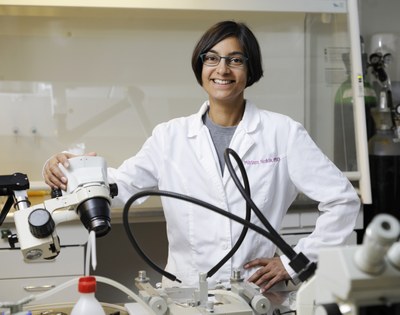October 2023: Miriam Nokia
Miriam Nokia, Associate Professor
Hello Miriam! Who are you and what do you do at JYU?
I am Miriam Nokia and I work as associate professor at the Department of Psychology. Together with my group members I study and teach the neural basis of learning and memory. I try to allocate some time for lab work every year but mainly my job in our group is to write grant proposals, analyze data and write research reports.
What is your current research interest?
During the past few years, we have been studying how breathing and heart beat affect learning and neural plasticity. We were recently awarded a research grant to study how vagus nerve stimulation affects learning, especially hippocampal function during sleep. That together with finding out how the cerebellum might contribute to memory consolidation will be our focus for the next couple of years.
What do you think would be interesting to research in the future?
Interhemispheric synchrony or asynchrony is something that has recently sparked my interest due to some unexpected findings we came across. This is something I might want to investigate more in the future.
Some of Miriam's recent published studies:
- Nokia MS, Waselius T, Penttonen M. CA3-CA1 long-term potentiation occurs regardless of respiration and cardiac cycle phases in urethane-anesthetized rats. Hippocampus. 2023 Nov;33(11):1228-1232.
- Waselius T, Xu W, Sparre JI, Penttonen M, Nokia MS. Cardiac cycle and respiration phase affect responses to the conditioned stimulus in young adults trained in trace eyeblink conditioning. J Neurophysiol. 2022 Mar 1;127(3):767-775.
- Lehtonen SM, Waselius T, Penttonen M, Nokia MS. Hippocampal responses to electrical stimulation of the major input pathways are modulated by dentate spikes. Hippocampus. 2022 Nov;32(11-12):808-817.
More of Miriam's publications can be found in Converis
